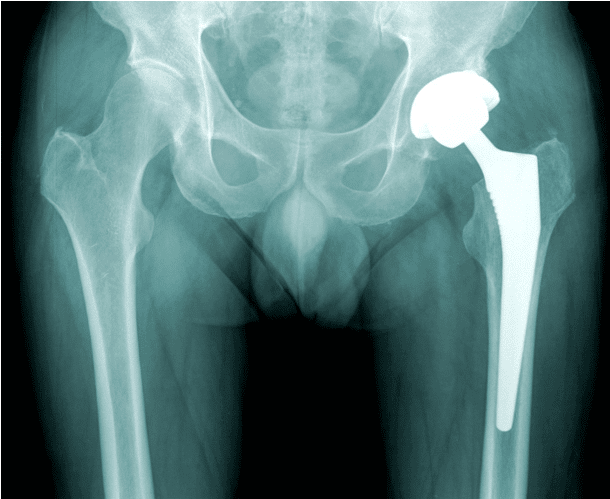According to a 2014 study by the American Academy of Orthopedic Surgeons, over 2.5 million Americans are living with an artificial hip.
It would come as no surprise if that number has risen significantly since then as the incidence rate of hip revision operations continues to grow. After all, they are quite effective in restoring mobility, eliminating pain, and improving quality of life for the patients.
What is a hip revision?

It is an operation done to repair a prosthetic joint that has been damaged over time. This could be due to normal wear and tear, loosening, a fracture, dislocation, or an infection.
Implants, whether ceramic, metal or some other material, are not permanent though they usually last around 20 to 25 years. Either way, a revision is necessary sooner or later.
Hip revision surgery shouldn’t be taken lightly, though. It is actually a lot more complicated than the initial operation. In fact, many physicians who perform primary replacements will normally refer their patient to a specialist because they know how much skill and experience is needed for it to be a success. Of course, patients also need to do their part in protecting their new joints to decrease the risk of complications after.
What should be done for a successful recovery?
If you have undergone hip replacement revision, be sure to take precautions in your recovery including:
What to Expect After Hip Replacement
Switching up your exercise routine
It is advised that you should avoid tennis, running, basketball, and other high impact activities. This is because they can damage or shorten the lifespan of your implant. If you really want to remain active, opt for walking instead. Nonimpact activities that build muscle strength are also acceptable.
Maintaining a healthy weight
When you’re obese or even overweight, you would have higher chances in developing arthritis. Not to mention that you would be more likely to experience the loosening of an implant. So, aim to lose some pounds if you’re packing some weight.
Planning your day ahead
In the early weeks following your hip revision, you need to maximize your rest time and plan your days. This is to minimize the number of trips up and down any stairs and the like. Also, place essential items like tissues, phone, and remote controls where you can easily reach them.
Using a cane or walker
These walking aids help ensure that you won’t fall and dislocate your new hip. They also signal strangers to be more cautious when around you. People in public areas are less likely to jostle or bump into you with a walker or cane. Don’t worry; you can decrease your dependence on them over time.
Treating the pain appropriately
Make sure that you get adequate relief as uncontrolled pain can make it difficult for you to participate in rehabilitation activities. Plus, it can potentially lead to chronic aches. If you are worried about addiction or side effects, speak with your doctor to come up with a pain management plan that works for you.

Minding yourself when in a car
Ideally, you shouldn’t drive for 8 weeks following your hip revision surgery. You can ride as a passenger about 3 weeks after you return home but not in cars with bucket seats or sports cars because of the low seats. Be careful how you get in or get off the vehicle as well.
Obeying your restrictions
After your operation, you will be given a long list of things that you should not do. For example, you should not cross your legs nor should you lift your feet to put on socks. These restrictions are for protecting your new joint from dislocation.
Thinking about sexual activity
Make sure to consult your physician when it comes to positioning during sexual activity. Intercourse may be resumed about 3 weeks after your operation but remember to follow the precautions outlined by your doctor.
Being patient with yourself
It can be tempting to do too much at once but you’ll only risk injury. So, work with your orthopedic surgeon or physical therapist to find a good balance between rest and activity. Of course, adjustments will be necessary over time as your hip function stabilizes and improves.
Doing long-term care
Keep up with your physical therapy exercises to maintain strong hip muscles that will support your implant. Additionally, follow up with your surgeon on a regular basis. It is recommended that you visit them every 1 to 5 years to check on the artificial joint. X-rays may be necessary to monitor any changes.
Where can a good doctor be found?

Don’t settle for just any physician when you’re suffering from hip replacement problems. You should see a specialist ensure that your operation and recovery will be a success. Dr. Nakul V Karkare of New York Hip Knee has the experience and skills needed to perform a successful joint replacement. Adding to that, he can provide you the much-needed advice to heal up faster.
By following the above tips and working with a good doctor, you should be able to cope with your hip revision just fine. It might not be a piece of cake at the beginning but you will adjust to the changes soon enough. Persevere and get help and all will be well.





